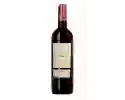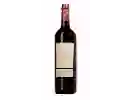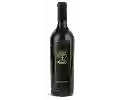
Winery D OustricOustric Picpoul de Pinet
This wine generally goes well with vegetarian, poultry or lean fish.
Food and wine pairings with Oustric Picpoul de Pinet
Pairings that work perfectly with Oustric Picpoul de Pinet
Original food and wine pairings with Oustric Picpoul de Pinet
The Oustric Picpoul de Pinet of Winery D Oustric matches generally quite well with dishes such as recipes .
Details and technical informations about Winery D Oustric's Oustric Picpoul de Pinet.
Discover the grape variety: Sousão
Most certainly Portuguese. It can also be found in Spain and South Africa. It would be related to the loureiro and the caino blanco.
Informations about the Winery D Oustric
The Winery D Oustric is one of of the world's greatest estates. It offers 6 wines for sale in the of South West to come and discover on site or to buy online.
The wine region of South West
The South-West is a large territorial area of France, comprising the administrative regions of Aquitaine, Limousin and Midi-Pyrénées. However, as far as the French wine area is concerned, the South-West region is a little less clear-cut, as it excludes Bordeaux - a wine region so productive that it is de facto an area in its own right. The wines of the South West have a Long and eventful history. The local rivers play a key role, as they were the main trade routes to bring wines from traditional regions such as Cahors, Bergerac, Buzet and Gaillac to their markets.
The word of the wine: Vintage (champagne)
It is a champagne made from a single harvest. In principle, we only vintage the great years: 1988, 1990, 1995, 1996... We find more often, now, the very good 2002, and the 2004, a little short.














